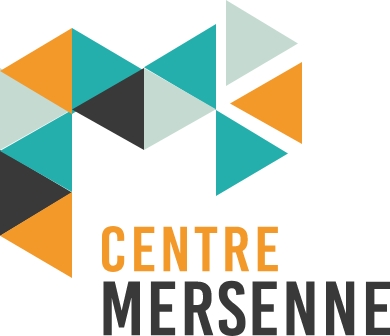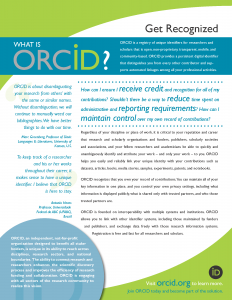In order to securely identify researchers with the same name, there are different identifiers: ISNI, IdRef, VIAF, ORCID, ResearcherID, idHAL…
While some are created and assigned automatically by national libraries, such as ISNI or VIAF, others can be created and managed by the authors themselves. This is the case of ResearcherID for the Web of Science (requires access to the WOS) or the ORCID number. It is the latter that we will focus on in this article.
What is the ORCID number?
ORDIC signifie Open Researcher et Contributor ID. It is a unique and persistent numerical identifier that distinguishes you from other researchers. It is not linked to any particular database (unlike ResearcherID for example). Compatible with the majority of scientific platforms, ORCID allows you to list and identify your publications in a unique and permanent way.
CoopIST has published a short 2-minute video that presents the ORCID identifier in a clear and entertaining way:
Based on a scenario by Cécile Boussou, CIRAD-DIST
Video broadcast with the agreement of PHILIPPE GELUCK in the framework of non-profit educational activities. https://geluck.com/
How do I get an ORCID?
To obtain an ORCID number, simply create an account on the official website.
Registration is free. Once you have completed the form, you will be given an ORCID number. You can then complete your ORCID web page and specify the access authorisations for your content: public, reserved for certain people, private.
You will then only need to associate your ORCID number with your identifiers on the various databases. For example, on HAL, you can associate your IdHAL with your ORCID number: all your publications on HAL will appear on your ORCID web page.
Why have an ORCID number?
Since ISNI, IdRef, ResearcherID… exist, why add an ORCID number? As far as the ISNI and IdRef are concerned, you do not control their creation or the publications grouped under these identifiers. IDs associated with databases, such as Scopus ID or ResearcherID, only allow you to list your items in those databases.
The ORCID number allows you to collect all your publications in one website, where you can control the publications in your ORCID profile. Indeed, each publication can be made public, private or reserved for a defined community. This makes the ORCID identifier very useful when creating a list of publications for evaluation reports, for example.
Your publications will be attributed to you correctly. Indeed, thanks to the ORCID identifier, homonymity problems are resolved: Mrs. Joséphine Durant, an astronomer in Grenoble, will no longer see the publications of Joséphine Durant, a biologist in Bordeaux, appear in her bibliography… In the same vein, the ORCID number makes it possible to answer questions of spelling rules since it is the author himself who defines his name and surname. No more hesitation: just go to the author’s ORCID profile. The same applies to identification problems linked to a change of name: as the author is no longer identified solely by his name, he can change it without affecting his visibility.
The ORCID can also be used to: respond to a call for proposals, submit an article or deposit datasets in a warehouse. In this case, the submitted documents will be automatically associated with their author, in a univocal way, and the ORCID number of the depositor will appear on the document, increasing the visibility of the author.
ORCID status
As stated on its official website, ORCID is « a global, not-for-profit organization sustained by fees from our member organizations. We are community-built and governed by a Board of Directors representative of our membership with wide stakeholder representation. ORCID is supported by a dedicated and knowledgeable professional staff ».



